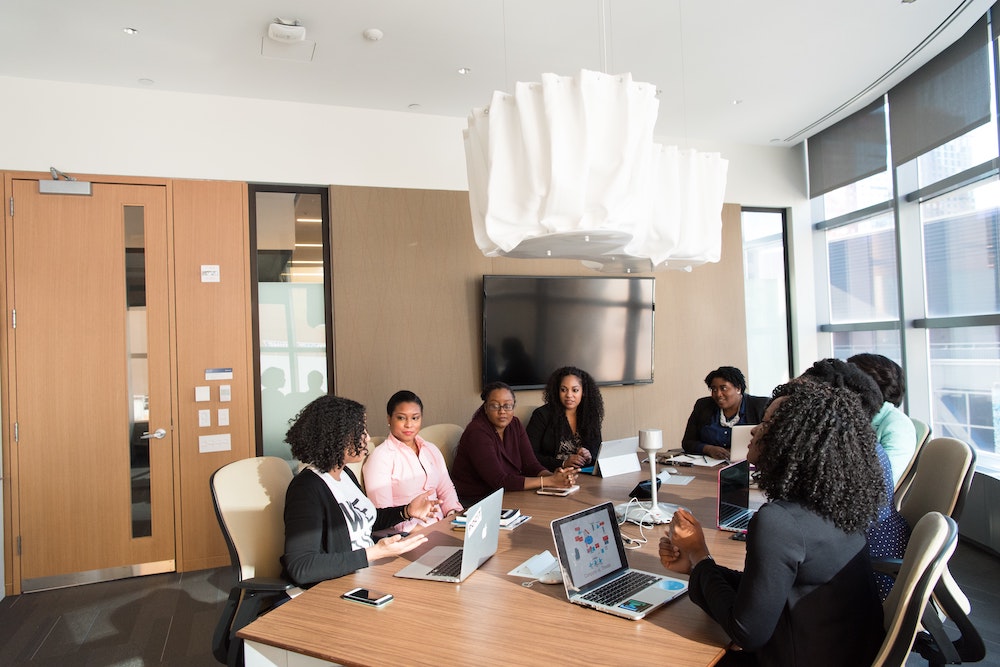I recently read an article on BoardSource telling readers who are considering starting their own nonprofit to not. Often I encounter people asking the question of, “how do I start my own nonprofit?” But perhaps too little do people ask the question of, “should I?” The article titled “Don’t Do it: Don’t Start a Nonprofit” was posted by Dahna Goldstein in 2017, and she makes several valid points for her position. I’ll outline them here so that we can discuss them:
- Starting a for-profit business with a social justice background may serve you and your community better than starting a nonprofit organization so as to limit competition on public funds and allowing you more liberty to generate self-sustaining income.
- Many people with great visions who start nonprofit organizations are often unable to gather the necessary funds to sustain their overhead, staff, and programs.
- Donations and grant money are a limited source of funds and new organizations soliciting these funds may be taking away crucial support from established organizations.
- Rage donating is a present phenomenon, but it’s unpredictable and therefore unreliable.
Goldstein holds a very realistic outlook when it comes to the negative impact new nonprofits have on the present political and social landscape. She offers the following statistics:
- There are more than 1.8 million nonprofit organizations in the U.S.
- There were nearly 80,000 new nonprofits created in 2016 alone
- More than 85% of nonprofits have an operating budget of less than $250,000
At the very least, the reality of the nonprofit sector in the U.S. should make us pause when it comes to new nonprofit formation.
As to the question of whether you should start your own nonprofit, my answer is not as stern as Goldstein’s. I say take your time to do thorough research, find a mentor(s), and gather your support network. While established organizations are vital for maintaining the status quo, new organizations keep the nonprofit sector innovative and challenge established organizations to evolve and improve.
As a small business owner, starting a for-profit business has its own challenges. Even with a socially conscious or social justice driven business model, the operations and marketing costs for a small startup are not that different from the expenses of a new nonprofit organization. I would argue that if you are already familiar with grassroots fundraising, have an established foundation and awareness of event planning, and have a mission where people are showing genuine interest, you may still want to consider opening your doors as a nonprofit. Small businesses usually operate at a loss the first couple years and even after that may only break even. Generating enough income to sustain your own salary, as well as those of your employees is a huge burden to take on. Simply being for-profit does not mean that actual profit will be generated. And more often it is difficult for for-profit businesses to tap into a large enough network that can offer valuable support in increasing your revenue stream. This is all to say that you should probably consider which model is best for your vision, and what will ultimately yield a greater chance for long term sustainability.
Public funds are without a doubt limited and scarce. With over ten years of nonprofit experience and working with organizations in Hawai`i, California, and Washington D.C., I have seen several small and medium-sized nonprofits close-up shop with little to no notice. There is no correlation between the age of the organization and its ability to secure long term funding. Instead I find that organizations with an active board and robust volunteer-base stay in the game longer.
So, whether a metropolitan or rural area, all new nonprofits should do their research to ensure that the following three boxes are checked:
A. Is your mission innovative?
B. Is there a gap in services being provided to your targeted audience?
C. Is there no other organization that can do the work you want to do at your level?
By answering yes to these questions, local grantors, foundations, and government bodies are more likely to offer your nonprofit funding. Of course, you will still need to demonstrate an effective program model with actual measurables. But I view the argument that new nonprofits take away money from established organizations with a grain of salt. Because I have also observed how national organizations are ineffective in supporting more regional and local based communities for lack of on-the-ground knowledge and staff.
Nonprofits continue to serve a vital role in the U.S. and both government agencies and long-established national and local nonprofit organizations do not always have all the answers. A blanket statement of “do not start your own nonprofit” holds too many drawbacks. I would like to continue to believe that people continue to hold interesting and bold new ideas. Continue to do your homework about starting your own nonprofit, and draw on lessons from thousands of others who have struggled in starting their own organization. Look at how your new nonprofit could partner with established organizations. Consider even whether an older organization would consider sponsoring you, whether that be support with office space, offering a letter of recommendation, or sharing your new program as a resource with their network.
If you have an idea for a new nonprofit and simply want to bounce ideas, do not hesitate to reach out! You can always message me at adam@socialchangeconsulting.com.

Adam (s/he, him) has a decade of nonprofit program experience working with immigrant and low-income communities. His areas of expertise range from refugee resettlement, legal advocacy, civil rights curriculum, LGBTQ organizing, and HIV education. Adam’s expertise lies in program development, implementation, and assessment. Adam is a foster parent and loves creating art. His small retail shop, The Garden Home, is a medium in which Adam can evolve and share his art.
